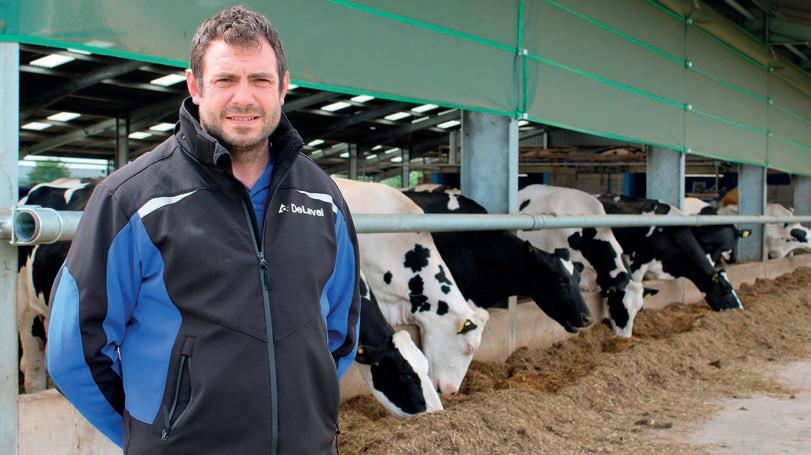
6 minute read
TECHNOLOGY
The Moffat family has recently installed two robot milkers, but has retained the existing herringbone parlour to produce milk for the farm’s two vending machines. Dairy Farmer reports.
Technology investment improves productivity
For Craig Mo at, who farms with his wife Alison, at Kirtle Bank Farm, near Gretna, the installation of two robotic milkers in January this year has meant yields have increased by more than 1,000 litres.
But in a more unusual move, the farm still operates the existing herringbone parlour, with a portion of the herd milked through this each day.
Mr Mo at explains: “I am fourth generation and started working with my father in the late 1990s.
“I remember he put in meters just a er the turn of the millennium and we still use the old herringbone parlour that he installed in 1996 to collect milk for our vending machines.
“By spli ing the herd, we can milk 48 cows through the parlour in an hour and the robots manage the rest.
“It was taking us more than three hours twice a day to milk through the 10/20 herringbone and it was not sustainable.”
e farm has always grazed lower yielding cows, choosing to maintain a traditional grassland system.
Economics
“Higher yielders have been kept in and the family built a new shed to house the robots in 2021.
Mr Mo at says: “I think it sends a good message that we are able to have some of the cows out, but the economics of robot milking, and keeping cows in, is signi cant to the overall sustainability of the farm.”
He says that he is sure yields will increase further as the robot system becomes more established and they make further improvements to diet and breeding.
He adds: “High yielding cows are visiting the robots up to ve times a day which is the main driver for the increased yield.
“It would be impossible for us to milk cows at that frequency, but with the robots I am targeting a 13,000 litre per cow average, which would have been inconceivable without the investment in this technology.”
Comfort
e new shed has improved the air space and cow comfort and is split into two halves with DeLaval VMS310 robot servicing each.
Cow brushes, more cubicles

Cow brushes have contributed to cow health and well-being. Craig Moffat
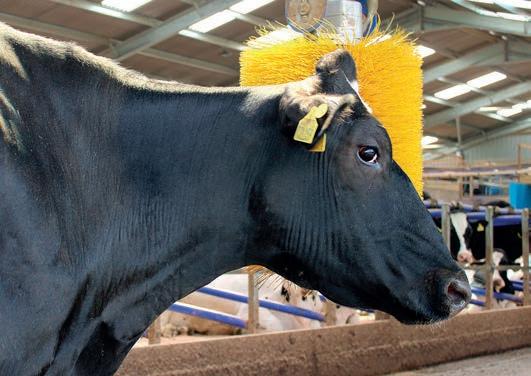
Farm facts
rKirtle Bank Farm extends to 124 hectares (330 acres) of owned and rented grassland rThe Moffat family has a herd of 200 milkers of which 127 have been recently moved to robot milking, with two DeLaval VMS310 robots yielding 11,305 litres per cow each year rThe family is hosting an open day on September 1, 2022, from 10am to 3pm rMore details on delaval.com

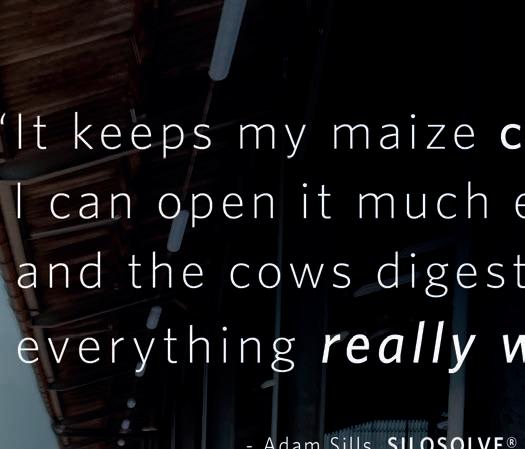
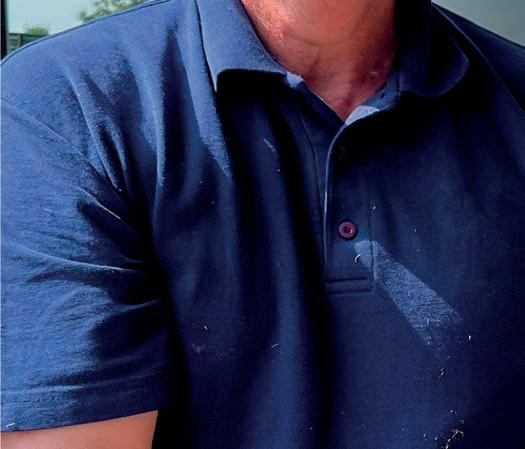
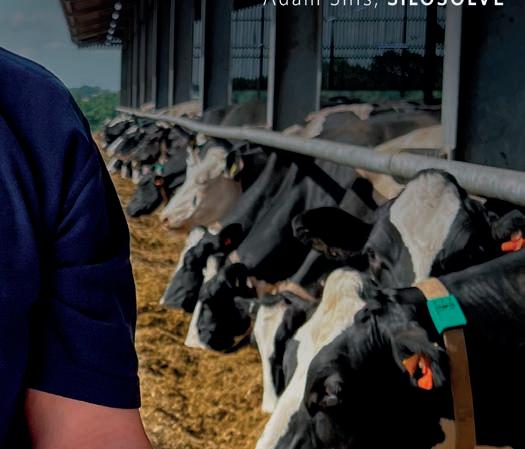
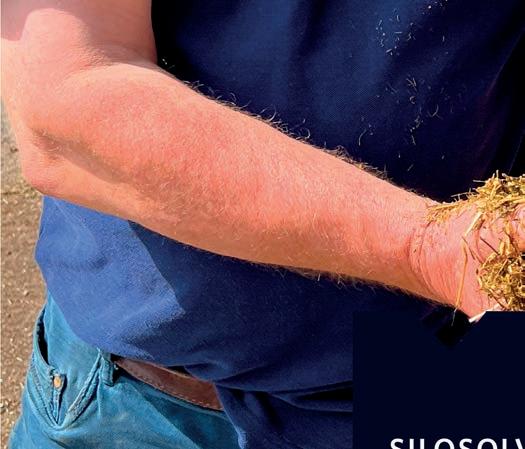
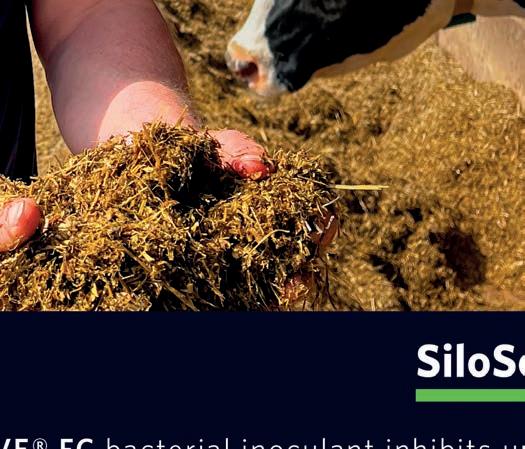


The family built a new shed to house the robots in 2021.
and the ability to milk the cows more o en, has all contributed to cow health and well-being.
SCCs have dropped from 175 to 85 and mastitis cases are as low as two a month, compared to eight to 10 cases a month previously.
Mr Mo at says: “ e drop in SCCs happened almost instantly.
“ e cows took to the robots so well and a er the rst week of training, we felt we had cracked the new system.
“ e robots also milk so much faster and our box time at the robot is just six minutes.
Significant
“ is is be er for the cows and has been a signi cant part of our yield increase.”
Some robot farms have chosen to use a free access system, but Mr Mo at has opted for a guided system.
“We visited a variety of farms with DeLaval robots and we saw how others had chosen to manage their herds.
“I believe the guided system is the best way to maximise the robots because only cows with milking permission can be milked.”
By using a guided system, he has been able to feed less concentrate at the robots compared to a conventional free access system. is encourages the cows to eat a higher energy TMR and reduces costs. On average, a cow passes the selection gate 11.5 times and is only given access 2.8 times a day. is means the cows are moving around the shed more and early lactation cows can be milked three or more times a day, while later lactation cows can be reduced to just two milkings.
Mr Mo at has taken on the AI and foot trimming for the herd himself and is proud that there are very few cases of lameness in the herd.
He also explains that before moving the milkers to the new shed, he housed the farm’s heifers for six weeks in the new shed to lower the pH of the concrete.
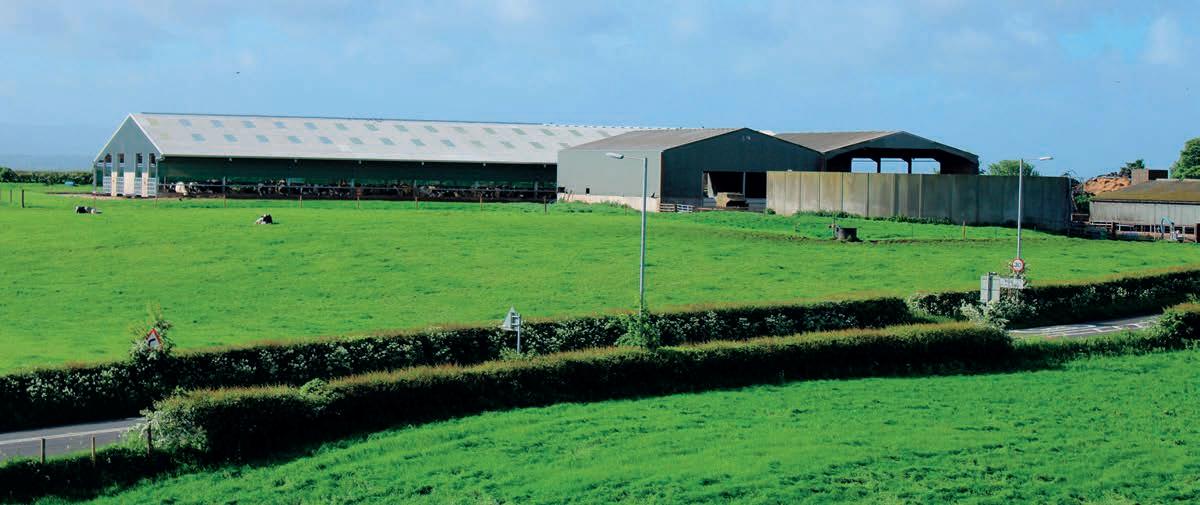
Foot issues
“We have had some dermatitis issues, so to mitigate against this and foot issues, I read that concrete can be changed by using slurry to change the pH.”
He has chosen not to use any genomic testing and instead breeds o what he sees as the best of the herd.
He believes strongly in established bloodlines and choosing cows with good feet and legs, well a ached udders and good overall robustness.
“We calve a lot of heifers now because our replacement rate was down to 16%.
“We could choose to grow the herd to 300 cows quite quickly, but the income from selling heifers is be er for us at this time.
“We can also be really selective about the ones we keep.”
He opted to install DeLaval’s Repro, a progesterone testing system that takes daily samples from milk for heat detection.
“We load casse es of sample sticks that the system uses to collect and test milk from each cow individually.
“ e data is fed into the DelPro management system which gives us information about every cow.
“It is more accurate and has made heat detection so much easier.
“We are only ve weeks in to using the system, but I can already track cows from service to in-calf more accurately.”
The cows took to the robots so well and after the first week of training, we felt we had cracked the new system
CRAIG MOFFAT
Vending machines driving sales
JAlison Moffat has headed up the farm’s diversification into milk vending machines, with one machine located opposite the farm and the other at the Caledonia Park outlet village.
The farm is happy with how sales have grown from the vending machines and Mrs Moffat sees further growth in the future.
The machines, supplied by Daisy’s Vending, were an investment of approximately £36,000 each and the family is hoping that they will be a useful income stream for the farm in the future.
Flavoured milkshakes
Mrs Moffat says: “All the machines sell milk and a selection of flavoured milkshakes. A 375ml milkshake cup retails at £1.50 and a litre is £1.90.
“Whole milk is £1.20 a litre.”










